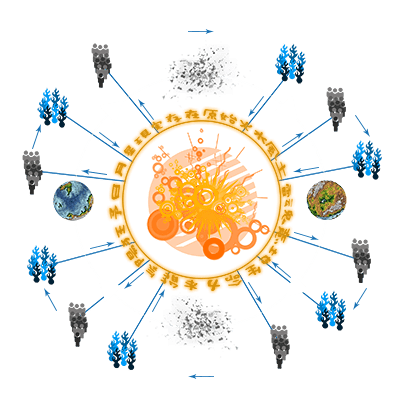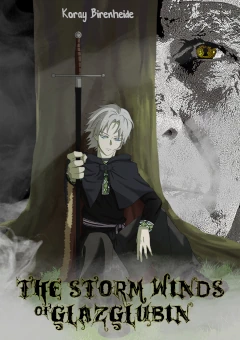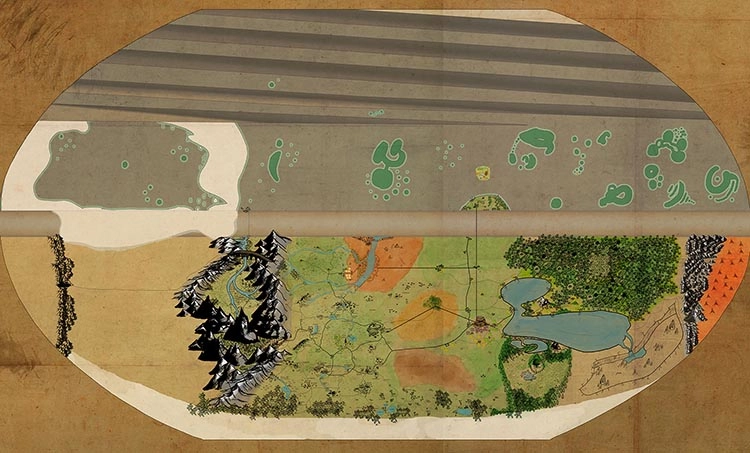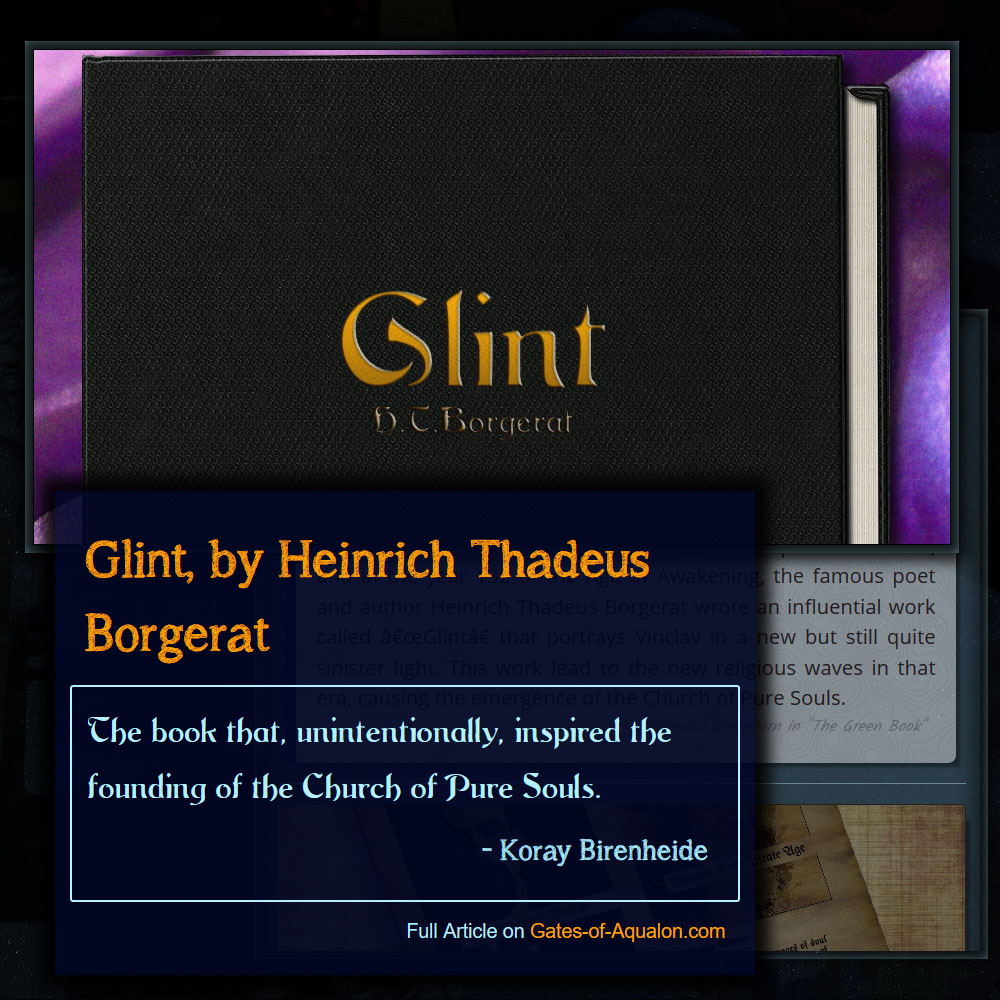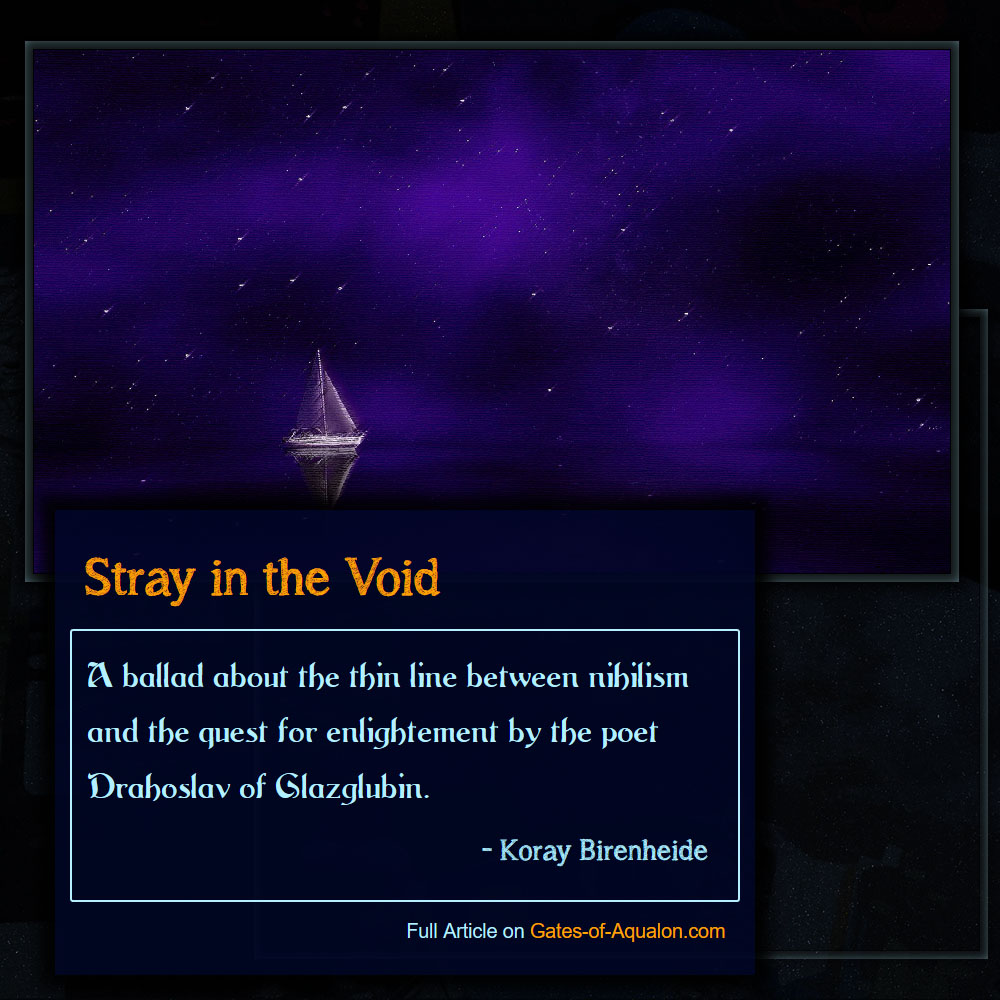School Aspects
Attunement defines how strong the connection between the magus and the corresponding ur-soul is. The more refined a magus's attunement, the more efficiently will their soul conduct magic for manipulating that element. Efficiency is useful because too powerful a flow will result in spellblight. Versatility defines how varied and complex the applications of the elemental magic are. Conjuring a flame with fire magic is a very basic application of that magic while making a source of light with it is a versatile application. Flexibility defines how creatively a magus can use her elemental magic. Rigid magic traditions and methodical schools can produce incredible power and versatility but often restrict how freely a person can manipulate an element. More complex rules can produce more powerful results that may in turn be less useful in some situations.Rating Ladder

Schools of Wind Magic
Magus Academies
Rickard Leeuw Magistorium
Aerialis
Current Master of this Style
Arch Magus Nathanael Trast
Type
Institution of higher learning

Versatility
Flexibility
 |
The Rickard Leeuw Magistorium was founded by the the arch magus Rickard Leeuw, author of the Codex Riccardium: Magna Magia, one of the most seminal publications of arcana to date. The Magistorium is, like the Gladering University, dedicated to teaching a wide variety of subjects, though its magical teachings are heavily focused on wind magic. The Magistorium's workshops are responsible for the invention of several of Aerialis's most famous and popular magic engines, including the incredible magical metal nubium, from which much of the structure of the Magistorium building has been fashioned.
Monastery of Five Paths
The island of Nyingma
Current Master of this Style
Lâmâ Ü-Tsang Rajavadi
Type
Spiritualist Monastery

Versatility
Flexibility
 |  |  |  |  |
The Monastery of Five Paths is not only renowned as a spiritual mecca for those who seek enlightenment in the elements such as ur-soulists, but also a well-respected magus academy even in the eyes of the elitist Middlish mages. This is due to the incredible ability of trained Monastery of Five Paths monks to change their elemental attunement within the span of one day, enabling them to manipulate any element of their choice given a 24 hour preparation period. The downside to this unique feat is that the attunement itself does not reach as deep as it does in other schools, and while a large portion of their magic is sealed away with the other four elements at any given time, they have a versatile repertoire of spells for each element as well as a commendable modicum of flexibility in their application. Those monks who leave the monastery are highly valued as teachers in other academies and can easily find work wherever magic is in demand.
Ka Hale Akamai
The island of Ainan
Current Master of this Style
Wavemaster Kaya
Type
Ur-soul Temple

Versatility
Flexibility
 |  |  |
Ka Hale Akamai is a recognized magus academy, though they've always been looked down on by the academic world for their laid-back attitude. In its halls on the pristine island of Ainan, students learn to attune themselves deeply to the ur-souls of water, wind, and sometimes lightning. Of course, they can only maintain an attunement to one ur-soul at a time, but with only weeks of re-attunement meditation required to switch, they are second only to the Monastery of Five Paths in this. Their incredibly deep connection with their own souls and by extension the Great Clockwork allows them to exert great influence on their attuned element and weave magic creatively. They do little by the way of standardized spells and applications of elemental magic, but rather evoke their magic by way of "the Wave Dance", a form of dance that acts as their totemic focus for producing magical effects. Depending on rhythm and expression, they can manipulate their element rather freely but often need more wind-up time to use magic effectively in combat situations. Of course, they are generally incredibly peaceful in their teachings and few will pursue the warrior's path. Still, some follow the call and use their magic to combat the pirates that infest the Corsic Ocean especially in the waters around the Ainan Island Group.
HJT Ferry Schools
Versatility
Flexibility
 |  |  |
Not officially recognized as a magus academy by Middlish scholars, the Ferry division of the Hank & Jordan & Tenzer Corporation is a group of ships mages that are trained and deployed all across the Corsic Ocean to provide magical services to ships of all kinds. Because the Corsic can prove treacherous to traverse due to storms and frequent pirate attacks, the hand of a trained magus is often the best way to keep a ship safe. Seeing an opportunity in this niche demand, HJT, a powerful shipping and ship-wright company, created their Ferry division, building schools for mages on various islands across the Corsic Ocean. Their curriculum encompasses a smorgasbord of styles, combining the words of power from Middlish schools of magic and simplified motions of the Ka Hale Akamai Wave Dance. Though their lack of spiritual guidance makes their elemental magic rather inefficient, they have a solid range of applied spells suited for their trade and a penchant for improvisation. Low entry requirements and a popularization of the Ferry trade via a series of books and magazine serials propagandizing them have made the Ferries icons of Corsic culture and an attractive career choice for many.
Traditionalists
The White Lancers of Aerialis
Versatility
Flexibility
 |
Stemming from the teachings of the Lord of Wind Adelbert Trast and his two Guardians of Wind, the noble art of Windriding has been passed down through the generations of White Lancers, a knightly order of Aerialis under the control of the margrave of Aerialis. Consisting mostly of nobles and those who have earned their station through military distinction, the White Lancers fulfill mostly day-to-day guard, patrol, and ceremonial roles in contemporary Aerialis, but are still called to serve as advanced scouts and strike times in the rare event of military actions. Their style of wind magic is a martial one, focusing on boosting mobility and outflanking enemies. Using directed blasts of air and specially constructed cloaks, called wingwraps, they use their magic to bear themselves aloft for brief but powerful jumps and charge their enemies with one-handed, rotating lances that look like drill bits and are called terebras.

The Nebelstürmers of Aerialis
Versatility
Flexibility
 |
Originally a group of battle mages attached to the Hall of Lake Rahn, the style of fog warfare practiced by the Nebelstürmers was initially based on water magic. But when the group migrated to the Eastern Fiefdoms, they began to incorporate more and more wind magic into their style with the rise of Aerialis. Today they are a military order of riders, who serve as outriders during larger battles, bringing the clouds down from the heavens to completely obscure the battlefield while they themselves use their unusual magic to retain a perfect overview of what is going on. Their style of combat magic is feared throughout the Great Land and makes up a significant portion of Aerialis's perceived military might.

The Shrine Caretakers
Denbanzoku 殿番族
Versatility
Flexibility
 |
[...]Yamato people are considered to be very superstitious since it is natural for them to believe in the existence of incorporeal spirits that sometimes influence their lives and, in rare cases, great amalgamations of contented souls that form powerful entities, which can be benedictive or vindictive, depending on their narrative. They are usually attached to pieces of lands and are called "kami". Often the Yamato people will construct shrines to honor them and bring them offerings, a custom woven into the ideas of ur-soulsim, which also enshrines the five ur-souls of the elements.Even in the latter centuries of the First Age, the Yamato Folk already followed the first crude teachings of ur-soulism, a religion centered around the five elmental ur-souls. Throughout the millenia, shrines were erected in their honor, first in Yamato, but later in lands beyond. Though the ecclesiastic aspirations of the faith ultimately led to the fall of the religion during the Age of Awakening, the faith and the traditions themselves remained strong in the hearts and minds of the Yamato people and even beyond the mighty mountain range. Today, the official caretakers of the Yamatonian elemental shrines falls to the Denbanzoku, a branch-family of the Yoshitsune Clan. Though attached to teachings of wind magic, which they hone both out of tradition and as a practical tool to remove dangerous moths from shrines, the Denbanzoku care equally for shrines of all five elements.

